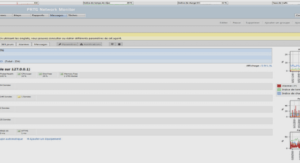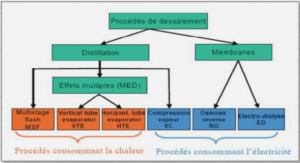REALISM in John OSBORNE’S PLAY
The background to the play
Look Back in Anger nearly mirrors the climate in Great Britain in mid fifties; therefore making a study of the specific historical, political, social and cultural context proves to be extremely pertinent. Following the Second World War, British politics and society experienced a period of rapid changes.
Historical background
In order to understand Jimmy Porter’s character and tirades, his relationship with his wife Alison and the other characters, we need some awareness of the widespread changes in post war Britain; changes which were closely linked with the arrival on the power of Clement Attlee’s Labour government. In fact, during that period several acts were posed on educational fields among them we can cite the creation of several “red-brick universities” 5 that broke away from the Oxbridge (Oxford+ Cambridge) model; for the first time in British history, university education and study grants were widely available to working class students. By nineteen fifties the development of technology during the two wars increased productivity and created more jobs; many workers came to the city in search of employment and the suburbs were developed. But during that time people started to realize that the Socialism Utopia was not to be: reforms held the promise of a more democratic society, but class barriers remained firmly in place. Thus, many young intellectuals suffer from a sense of betrayal and futility, and are caught between contempt for and conflict with authority. They are alienated from society, and deflect their frustration in indifference, self pity and sarcasm. On the one hand they loose touch with the working class, on the 5 Education Act which allowed the creation of universities for working class people in 1944 7 other hand they fail to find their niche in a new class. So they thought of doing something which would help them. And actions that needed to be taken turned into thoughts and political positions. And frustration inevitably followed for those who felt they needed to participate in the world around them. It was in that perspective Osborne wrote his most famous play Look Back in Anger which had an impact on British political system. In fact, it is the mistaken association of the post war Labour government with the failure of socialism that accounts for Porter’s frustration. Osborne active in various protests at that time such as the Campaign for Nuclear Disarmament articulated his own sentiments through his main character. In this respect, it is possible to see in the play expressions of the political impasse that had been reached in Britain during the nineteen fifties, as a result of the domination of intellectual life by Stalinism6 and social democracy.
Political and socio-cultural background
In the political field, after the Second World War the United Nations Charter also called for progress towards self-government. Britain had lost control of colonial possessions to Japan during that war and it was felt that the British Empire could not continue much longer. British rule in India could no longer continue. How far, and at what point, a majority of the British population had digested the fact that Britain was no longer a major world power is difficult to determine. Indeed, the Suez crisis in 1956, in which Egypt refused to renew the British- owned Suez Canal company’s concession and which resulted in a 6 Stalinism is the ideology that Joseph Stalin conceived and implemented to Soviet Union- it’s its method of rule or policies 8 disastrous and humiliating intervention by England, simply emphasizes the lack of power exercised by Britain in the post world war II. In fact, the cultural backdrop to the play is the rise and fall of the British Empire. By nineteen fifties; the two world wars, which devastated the British economy and the rise of the United States the new world military and political power meant that the British Empire had entered a steep decline. However, in the decade between the end of the war and Osborne writing Look Back in Anger, a rush change had occurred. The British people showed they wanted a change in society. They voted for the Labour Party instead of Churchill and the conservatives. That new government set up a welfare system in which the state could help ever one rich or poor. It also gave women many more rights. Although Labour had achieved several successes, the inability to meet the nation’s housing problems and their troubles to face the payments deficit meant the encouragement of Labour’s defeat in 1951. The downfall of Labour had great impact on the conscience of its voters. The defeat meant an end to the optimism that had carried Labour forward in the first difficult years after the war. It meant a setback to all those who had believed in the Labour Government as “their government”, and had regarded 1945 as a political watershed. The disappointment and disillusion that followed in the wake of this defeat helped keep the Conservatives in power for the following 13 years, and had a crucial influence on the political mood of the decade.7 The 1950s was the end of an era with social reforms and the beginning of a period with little state interference. The age of wealth, individual moneymaking and no public commitment nor enthusiasm for political or social reasons caused 7 Skovmand, Michael, and Steffen Skvomand, ed. The Angry Young Men: Osborne, Sillitoe, Wain, Braine, Amis. Oslo: Akademisk Forlag, 1975. Print. P.15 9 anxiety and disillusionment, especially among the working classes. The pessimism and resentment of the Angry Young Men is clear evidence of the discouragement inflicted by the wretched state of Britain in the 1950s. In fact, in post-war Britain, mass-produced culture from America began to supplant the indigenous type favoured by the middle-class. Britain’s cultural dominance was no longer given: it became a nation in decline, slowly losing its importance. While the old social order was deteriorating, the working-class became more visible, more vocal because the Welfare State had increased educational opportunities and earning potentials. The Angry Young Men represented a new order of the educated working-class men who could now vent their frustrations with a class system that had oppressed them for decades. While some of the literary Angry Young Men sought to achieve the same material privileges as the bourgeoisie, many among them sought an authenticity beyond financial success. This movement appealed to youths who felt hopeless in the midst of England’s dismal post-war economy. It was in that perspective Osborne published his play Look Back in Anger. However the first performance of Look Back in Anger at the Royal Court Theatre in 1956 “marks the real break-through of “the new drama” into the British theatre” (Innes, Modern British Drama: 1890-1990: p.98)8 . The play was a real innovation because the anger of its protagonist Jimmy Porter symbolized the general condition of Britain’s lower middle class in the 1950s: “What was new and struck the public nerve in Look Back in Anger, was the sense of naked honesty that came from the identification between author and protagonist, and the tone of self-lacerating (but generalized) anger” (Innes, Modern British Drama: 1890-1990 : p 103). In fact, the “new spirit” of Look Back in Anger obviously had a major influence on the theatre of the 1950s. The subject matter of twentieth-century 8 Innes, Christopher. Modern British Drama: 1890-1990. Cambridge: University Press, 1992. 10 English theatre until 1956 had been polite, perhaps witty, and even elegant and glittering in the use of language; however, it did not speak to the concerns of the nation, either young or old. It was a theatre of diversion, a theatre careful not to upset the illusions of its middle-class audience, a theatre that had lost all relevance to life as it was in fact being lived in post-World War II England. John Osborne changed that. Kenneth Tynan said in the Observer9 on December 19, 1959: “Good taste, reticence and middle-class understatement were convicted of hypocrisy and jettisoned on the spot.” According to him “they were not jettisoned in polite, or even comedic, political or social analysis; they were jettisoned by an articulate, educated, furious young man who pointed out what his contemporary world was really like”. It was not the world of egalitarianism and idealism that had been envisioned by the socialist intellectuals. It was a dreary world in which, as Jimmy says, “There aren’t any good, brave causes left.”(Osborne, 89) Church is also criticized in the theatre of the 1950s because it was out of contact with the daily lives of most Englishmen. The Church is not simply a spiritual leader but also owner of vast properties and thus a member of the landholding class. The Church is attacked by Osborne when he has Jimmy quoted “the fictional Bishop of Bromley” as saying that he is upset because someone has suggested that he supports the rich against the poor. All these elements mentioned above prove that Osborne’s play is directly linked with the great reality of the Englishmen particularly the young people during that time. So he uses his play as a weapon to struggle against the injustice of British post-war society emphasizing the concerns of lower middle-class while criticizing the manners and pretensions of middle-class and upper middle- 9 Qtd from Terry W Browne’s book entitled Playwrights’ Theater which is a study of the company that first produced Look Back in Anger 11 class life. And that’s why we focus our study on realism in Osborne’s play. In so doing the realistic form of the play will be analyzed in the following chapter.
Introduction |



